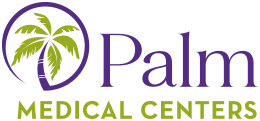
Medicare is federal health insurance for those age 65 and older, as well as some people under 65 with certain disabilities or conditions. Although Medicare has been in existence for nearly 50 years, there are common misconceptions about Medicare services that persist, preventing many eligible participants from taking advantage of the program’s full benefits.
Here are those common myths – and the truth about Medicare services:
Myth:You can enroll in Medicare at any time.
Although most people are eligible for Medicare when they reach age 65, they have a 7-month enrollment period in which to sign up for Part A (hospital) and/or Part B (medical). That initial enrollment period includes the three months before your 65th birthday, your birthday month, and the three months following your 65th birthday. You must sign up during the initial 7-month eligibility period – unless you are eligible for special enrollment – or have to wait until open enrollment from January 1-March 31.
Myth: Your prescription drugs are not covered by Medicare.
While Original Medicare (Parts A and B) only provides basic drug coverage – a limited number of outpatient prescription drugs under limited conditions – there are Part D plans that are offered through private insurance companies as standalone plans, or those that can be purchased as part of a Medicare Advantage (Part C) plan.
Myth: Assisted living and home (custodial) care are covered by Medicare.
Neither assisted living nor home care assistance are covered by Medicare.What Medicare does cover are some skilled nursing facility and home care, as long as it does not exclusively involve custodial care. This includes intermittent skilled nursing care, physical therapy, speech-language pathology services, continued occupational services, and other services, under various conditions and restrictions.
Myth: Medicare and Medicaid are synonymous.
These are entirely different programs. Whereas Medicare provides health coverage for those age 65 and older, as well those with end-stage renal disease (ESRD) and other conditions, Medicaid is designed to provide health coverage for people with low income and few resources. You may be eligible for both Medicare and Medicaid but, if so, you must apply for each program separately.
Myth: A Medicare supplement (Medigap) plan offers the same coverage as Original Medicare.
Medigap plans are designed to help cover costs – such as copayments, deductibles, and coinsurance amounts – that aren’t covered by Original Medicare (Parts A and B) or by a Medicare Advantage plan (Part C).
Myth: You’re not eligible for Medicare if you’ve never worked.
While a person needs the 10-year equivalent 40 work credits to qualify for Medicare Part A with no premium, homemakers can obtain no-charge Medicare Part A based on their spouses’ work record provided the person is 65 or older and their spouse is at least 62. If you are not eligible for this allowance, you will need to pay a premium for Part A until you earn 40 work credits. Part B and Part D have separate premiums regardless of how long you’ve worked.
Myth: Medicare is free.
On the contrary, while Medicare Part A has no premium for those who have at least 40 work credits or those who qualify based on their spouse, several parts of Medicare have premiums. For example, the standard premium for Part B is $164.90 a month (2023). The standard premium may increase if your individual tax return is $97,000 and above or if you file a joint tax return of $194,000 and above. Medicare Part C plans may or may not have an additional premium, while Medicare Part D plans purchased through private insurance carriers have varying costs and Medigap plans have an additional premium that varies in cost.
Medicare Services in Tampa, Florida
The finer details of Medicare coverage can be confusing. That’s where a patient outreach representative at Palm Medical Centers can help make sure you receive all the assistance to which you are entitled.
Palm Medical Centers is an affiliated ACCESS Florida site, a limited extension of the Florida Department of Children and Families program that assists recipients in social and government programs.
To learn more about our social services assistance programs or to become a patient at Palm Medical Centers, call us at (833) 500-PALM (7256). We have 26 medical centers located throughout South Florida and Central Florida. You can also schedule a tour of your preferred site, at no cost or obligation to you.

 4.8 Google Rating out of 7K Reviews
4.8 Google Rating out of 7K Reviews






